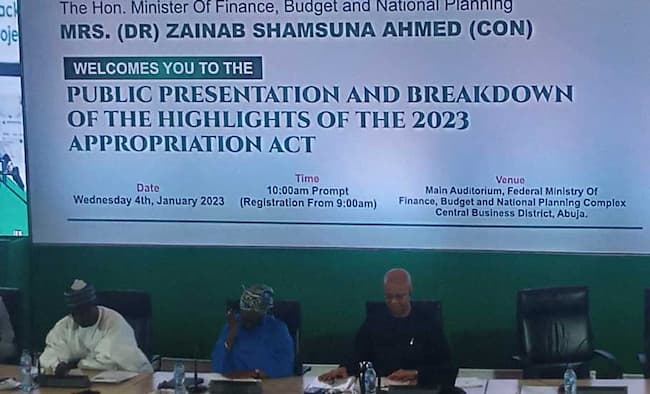The Federal Government (FG) has stated that it will no longer pay fuel subsidies by the end of June 2023.
Mrs Zainab Ahmed, Minister of Finance, Budget, and National Planning, revealed this during the public presentation of the 2023 Federal Government (FG) budget.
BizWatch Nigeria reported that President Muhammadu Buhari signed the ₦21 trillion 2023 budget into law on Tuesday, following its approval by the National Assembly last week.
The Finance Minister stated that the government has budgeted ₦3.36 trillion for fuel subsidy payments for the first six months of this year in the fiscal year 2023.
She stated that this is consistent with the 18-month extension announced in early 2022.
Ahmed said, “The projected fiscal outcome in the 2023 Budget is based on the PMS subsidy reform scenario.
“In the 2023 Budget framework, it is assumed that petrol subsidy will remain up to mid-2023 based on the 18-month extension announced early 2022.
“In this regard, only ₦3.36 trillion has been provided for PMS subsidy.
“There will be tighter enforcement of the performance management framework for Government Owned Enterprises that will significantly increase operating surplus/dividend remittances in 2023.”
2022 income
The Minister stated that the Federal Government’s revenue was ₦6.50 trillion as of November 2022.
This, she said, is roughly 87% of the prorated target of ₦7.48 trillion.
She estimated that the Federal Government’s share of oil revenues was ₦586.71 billion, representing a 35.7 percent performance, while non-oil tax revenues totaled N2.09 trillion, representing a 123.3 percent performance.
She stated that the collections of Companies Income Tax (CIT) and Value Added Tax (VAT) were ₦1.08 trillion and ₦295.2 billion, respectively, representing 158.6 percent and 124.3 percent of their respective targets.
Customs collections (including import duties, excise, fees, and special levies) exceeded the target by ₦15.42 billion, according to Ahmed.
She stated that as of November 30, the actual spending from the 2022 budget was ₦12.87 trillion.
₦5.24 trillion was spent on debt service, ₦3.94 trillion on personnel costs, including pensions, and ₦8.1 trillion on statutory transfers, overhead, and service-wide votes.












